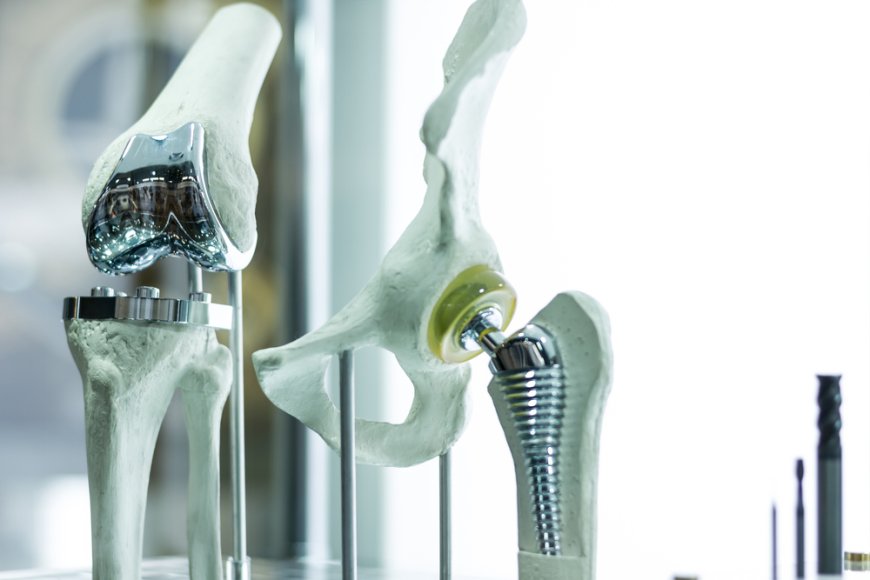How to Choose Between Surgery and Conservative Treatment for Hip and Knee Conditions in Karachi?
Explore the decision-making process for hip and knee conditions in Karachi. Understand the differences between surgery and conservative treatment options, evaluate your symptoms, and consult with orthopedic surgeons to make an informed choice for optimal recovery.

When faced with hip or knee conditions, patients often find themselves at a crossroads: should they opt for surgery or pursue conservative treatment options? This decision can be overwhelming, especially in a bustling city like Karachi, where access to healthcare options is plentiful. Understanding the differences between these approaches and evaluating your specific situation is essential for making an informed choice. This article will help guide you through the decision-making process regarding hip and knee surgery in Karachi and conservative treatment for hip and knee issues.
Understanding the Options
- Conservative Treatment
Conservative treatment, also known as non-surgical treatment, involves various methods aimed at alleviating symptoms without invasive procedures. Common conservative approaches include: - Physical Therapy: Tailored exercises can strengthen muscles around the joint, improve flexibility, and restore function.
- Medications: Over-the-counter or prescription medications, such as NSAIDs, can help manage pain and reduce inflammation.
- Injections: Corticosteroid or hyaluronic acid injections may provide temporary relief from pain and swelling.
- Lifestyle Modifications: Weight loss, activity modifications, and ergonomic adjustments can relieve stress on the joints.
- Assistive Devices: Braces, orthotics, and canes can help improve mobility and reduce discomfort.
- Surgical Treatment
Surgery is typically considered when conservative treatments fail to provide sufficient relief or when there is significant structural damage to the joint. Common surgical options include: - Arthroscopy: Minimally invasive surgery that allows the surgeon to visualize and treat issues within the joint.
- Osteotomy: Reshaping of bones to relieve pressure on the joint.
- Joint Replacement: Partial or total replacement of the joint with artificial components.
Factors to Consider When Making a Decision
- Severity of Symptoms
Evaluate the severity of your symptoms. If you experience chronic pain, significant joint instability, or loss of function that affects your daily activities, surgical intervention may be more appropriate. On the other hand, if your symptoms are manageable, conservative treatment could be a viable option. - Duration of Symptoms
Consider how long you have been experiencing symptoms. If you have tried conservative treatment for several months without improvement, discussing surgical options with your orthopedic surgeon may be warranted. - Age and Activity Level
Your age and activity level play crucial roles in the decision-making process. Younger, more active individuals may prefer surgery to achieve better long-term outcomes and a return to sports or other activities. Older patients or those with lower activity levels may benefit more from conservative management. - Joint Condition and Imaging Results
Diagnostic imaging, such as X-rays or MRIs, can provide valuable insights into the extent of joint damage. Discuss the results with your orthopedic surgeon, who can help determine whether conservative or surgical treatment aligns better with your joint condition. - Personal Goals and Lifestyle
Reflect on your personal goals and lifestyle. If you wish to maintain an active lifestyle or return to specific activities, surgery may be the best option for optimal recovery. Conversely, if you prioritize avoiding invasive procedures, conservative treatment may be preferable. - Potential Risks and Benefits
Both treatment options come with their risks and benefits. Surgery may involve longer recovery times, potential complications, and the need for rehabilitation, while conservative treatment may not provide the desired relief for everyone. Discuss these factors thoroughly with your healthcare provider. - Consultation with an Orthopedic Surgeon
Engaging in an open discussion with an orthopedic surgeon is crucial. They can provide insights tailored to your condition, treatment options, and expected outcomes. Seek a second opinion if you are uncertain about the recommended approach.
Conclusion
Choosing between surgery and conservative treatment for hip and knee conditions is a significant decision that requires careful consideration. In Karachi, patients have access to a range of healthcare professionals and resources to assist in making this choice. By evaluating the severity of symptoms, duration of issues, activity levels, and personal goals, you can arrive at a decision that aligns with your health needs. Consulting with an orthopedic surgeon will provide you with the expert guidance necessary to navigate this journey. Ultimately, the goal is to enhance your quality of life and restore function, whether through surgery or conservative management.

 Anokshi kumari
Anokshi kumari 










